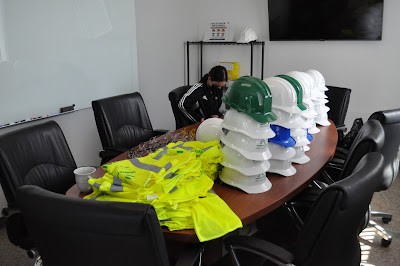The Birds and the Bees
With the title "The Birds and the Bees" we hope to catch your attention and get your to read further.
First--and this blog really deals with the effects of the drought on wildlife and plants--is the birds. With plants stressed, birds are finding it hard to feed themselves. A good option is a bird feeder and they come in a variety of types. Cats, even indoor cats, have a great time watching birds.
Hummingbirds are always looking for a food source. For hummingbird feeders, there are a couple of things to remember.
First, the best nectar for hummingbirds is one that does not have any color in it. The recommended mixture is 4 cups water to 1 cup sugar and boiling the mixture until the sugar completely dissolves.The second important things is keep your hummingbird feeder clean and wash it out often. Mold can build up in the feeder and make birds ill.
All of the birds are looking for water and need water as many of the water sources away from your yard are now dry. I'm making an extra effort to keep clean water in my small fountain.
And, of course, we are finding more and more wildlife in urban areas. With the drought, they arrive seeking both food and water.
Bees and insects pose a couple of issues. We are find more insect bites than normal and, again, we suspect the drought. A few things to remember: "Bees, wasps, hornets...inject venom from the tip of their abdomen are sometimes considered beneficial because of their importance in pollination or in preying on other pest insects. However, anyone who has ever been stung by one of these creatures will usually think otherwise.
"After being stung, it is important to immediately remove the stinger and venom sac if they are present at the sting site. This can be done with a fingernail, the edge of a credit card or tweezers. Immediate removal will stop venom from being released. Avoid squeezing the venom sac. Wash the site with soap and water and apply cold compresses to relieve pain and swelling."For more pronounced reactions, apply hydrocortisone cream or calamine lotion to reduce itching and swelling. If itching and swelling are bothersome, take an oral antihistamine like diphenhydramine (Benadryl) or chlorpheniramine (Chlortrimeton). For severe reactions, seek immediate medical attention."
We send our crews out with a sting kit so that they can address the bite immediately. It also helps to know what crew members have more severe reactions to bite.
Bees, so important as pollinators in the garden, need water. A recent suggestion that I read about was to have a bowl full of water in the shade and fill the bowl with marbles or pebbles so that the bees can land and drink.






Comments
Post a Comment